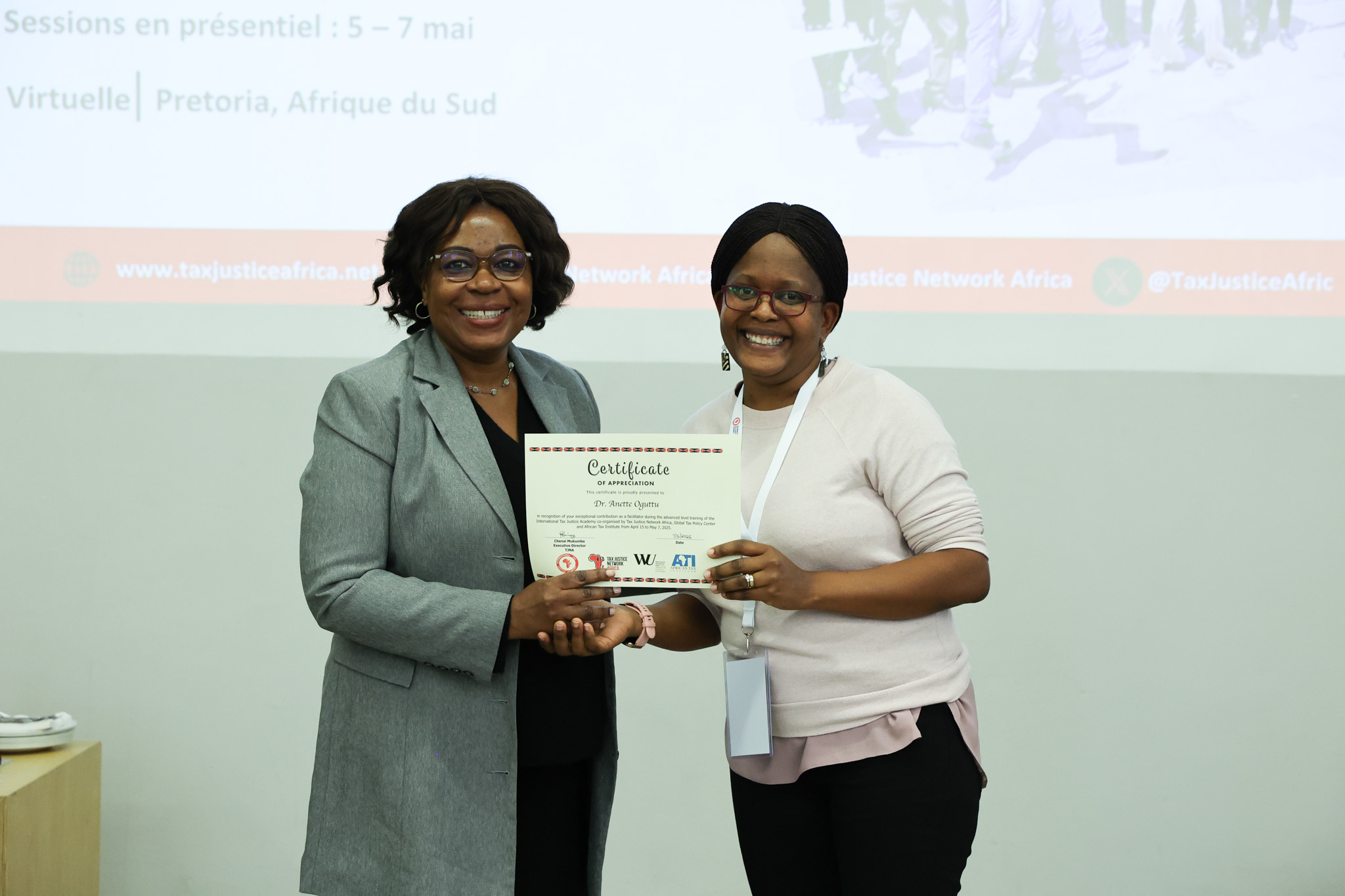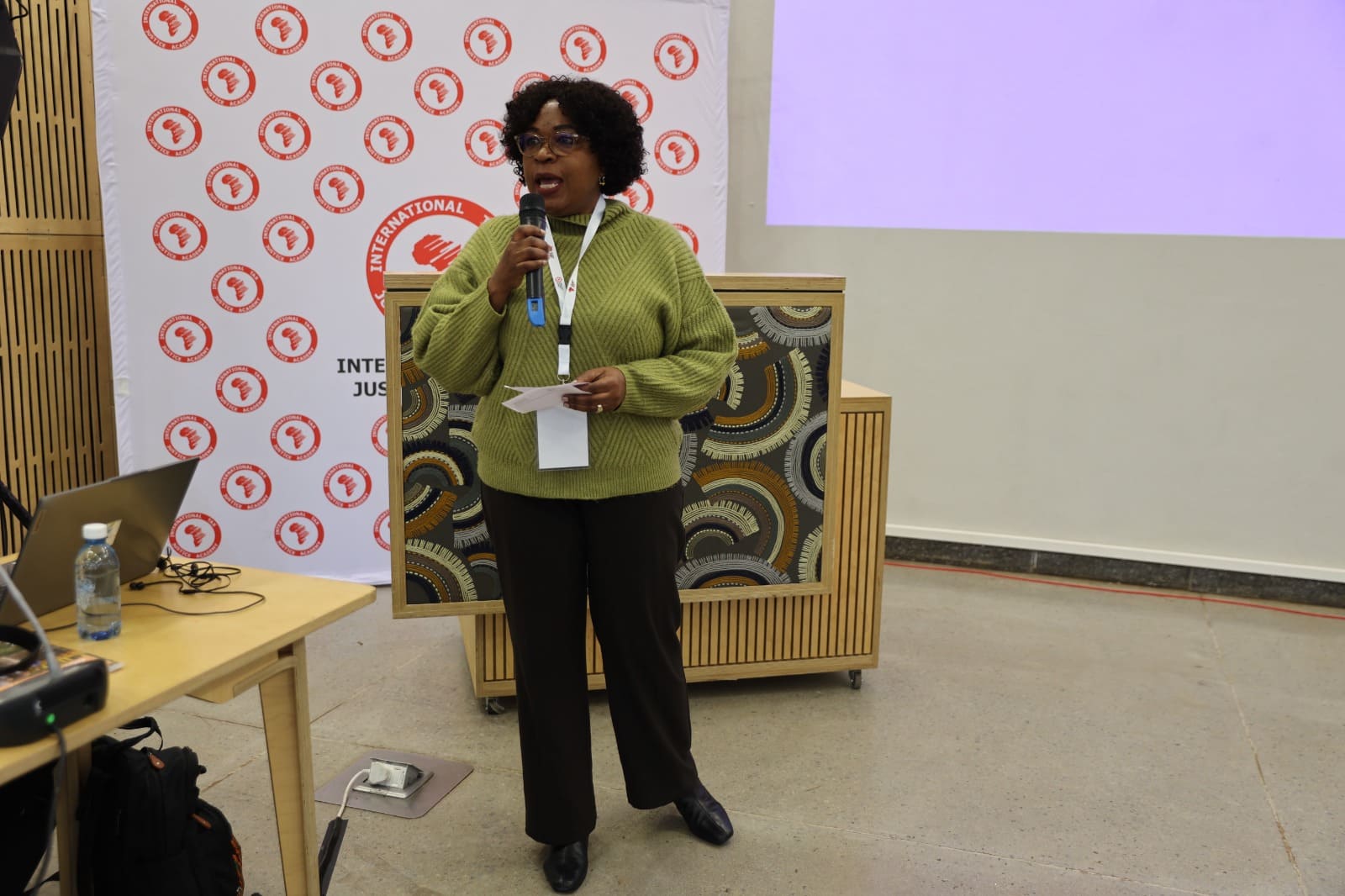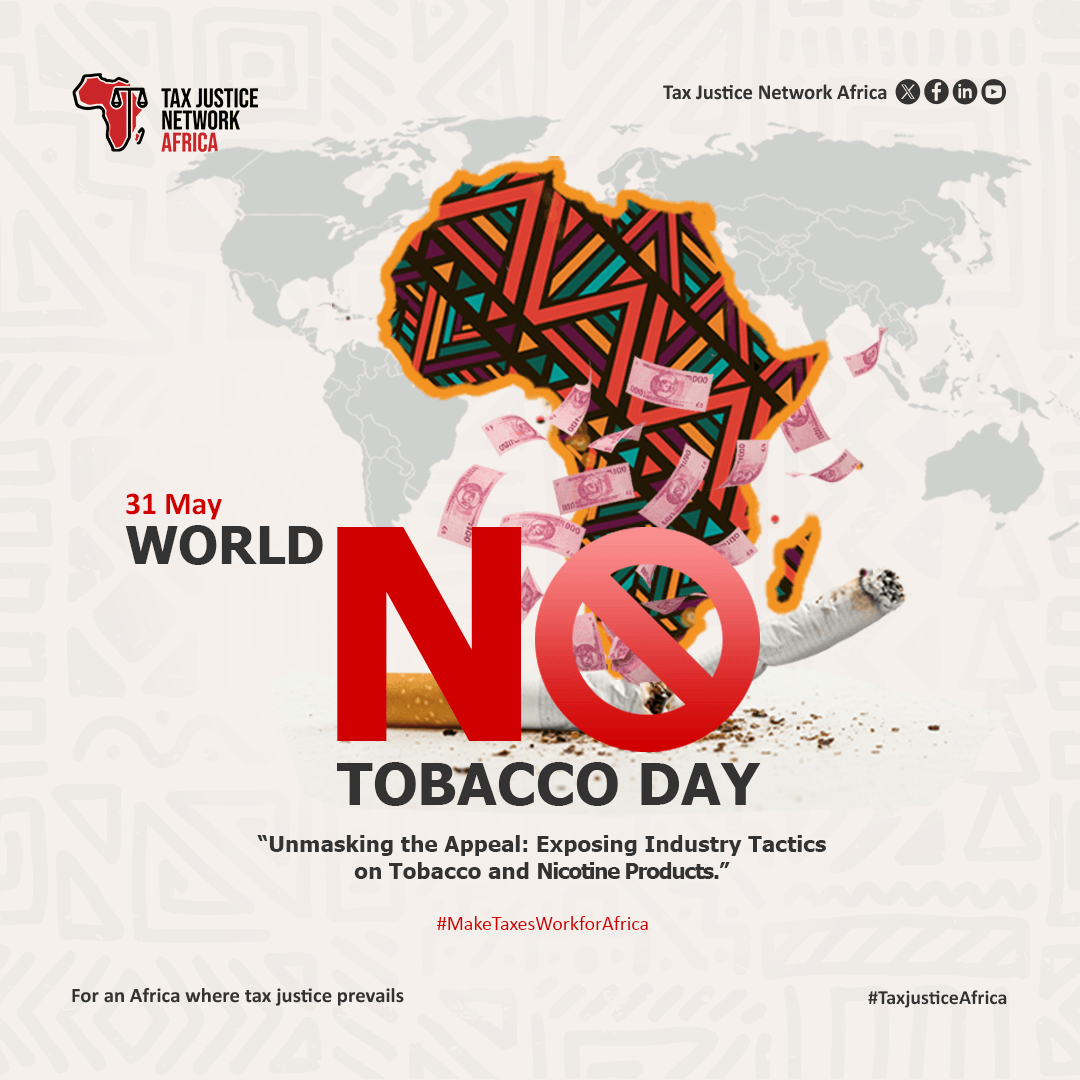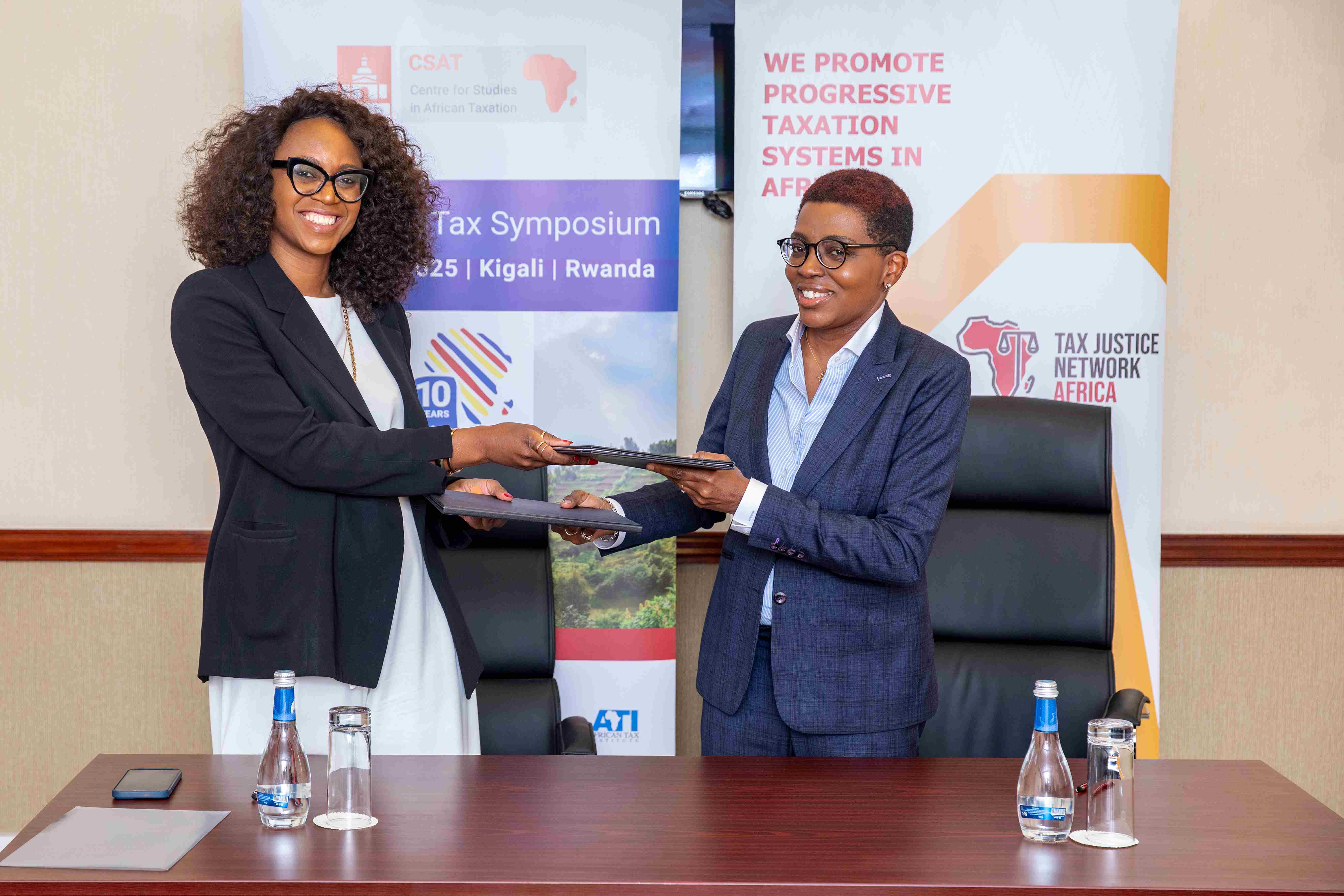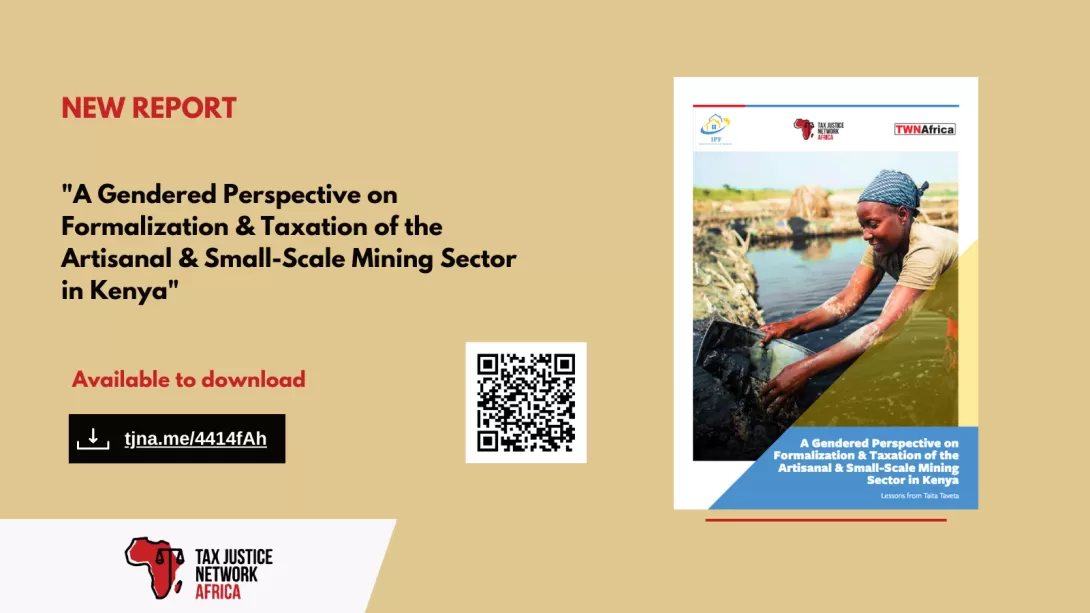
A new report commissioned by Tax Justice Network Africa (TJNA) and The Institute of Public Finance (IPF) titled A Gendered Perspective on Formalization & Taxation of the Artisanal & Small-Scale Mining Sector (ASM) in Kenya, Lessons from Taita Taveta County highlights the need for formalization and taxation of Kenya’s ASM sector from a gender perspective, to improve the livelihoods of women in the sector.
The report by TJNA, together with the Institute of Public Finance suggests that if formalization of Kenya’s ASM sector is done right, it could address challenges unique to the sector such as the negative socio-economic, health and environmental impacts of Artisanal and Small-scale Mining (ASM) activities, and tap into the sector’s economic potential for improved welfare and reduced poverty levels.
The informal ASM sector provides income for low-income households but has negative socioeconomic, health, and environmental impacts due to a lack of formalization. Troubling aspects include miner fatalities, illness from inadequate protective equipment, land degradation, and pollution. The sector is also linked to child labor and Sexual and Gender-Based Violence (SGBV) against women.
Women make up a significant proportion of the ASM sector workforce in Kenya. However, the cultural definition of gender roles has affected women’s participation in some activities and pushed them to lesser productive activities within the ASM sector. There is also evidence of discrimination against women that limits their access to land and allocation of mining rights, and consequently, their participation in the sector is limited.
To better regulate the mining sector, Kenyan government developed a Mining and Minerals Policy in 2016 and enacted the Mining Act in 2016. The government aimed to formalize the ASM sector through legal and institutional frameworks, but the policy implementation has been relatively slow. Factors such as lack of clarity on the licensing process and ambiguous legal definition of artisanal and small-scale mining remain major obstacles. Reviewing Kenya’s legal and regulatory framework established higher chances of static bureaucracy in the licensing process and reporting requirements.
The policy recognizes that women have increasingly been involved in mining but are marginalized because they have limited access to and control over resources, productive assets, decision-making, access to information and technology, and limited entrepreneurial skills.
Whereas one of the core objectives of the formalization of the ASM sector in Kenya was to increase the participation of women in mining activities and to address the historical dominance of men in the sector, this has yet to be achieved. Additionally, formalization is yet to achieve its objective of raising revenue for the government as was envisaged.
To mitigate some of the challenges faced in Kenya’s ASM sector, the report recommends the development of value addition centers akin to support value addition, link miners to official buyers, and be a point of contact between miners and the government. It also suggests that the government and non-state entities must offer ongoing training on various mining elements to benefit women, small-scale and artisanal miners. The topics covered in this training must include value addition, record-keeping, market access, and mineral identification. Further, the ASM sector should be provided with extension services, including geological data and mine inspections.
In addition, the report suggests that the national government should issue guidelines on the issuance of permits to artisanal miners. The report additionally calls for amendment of the Mining Act, 2016, and Mining (License and Permit) Regulations, 2017, to redefine artisanal mining to reflect the current reality. Further, it calls for fast-tracking the implementation of the Artisanal Mining Strategy and interventions proposed there and the expedition of enactment of royalties sharing framework to pave the way for transfer of county share of royalties by the national government.
Stakeholders, including policymakers, civil society, and the government, are urged to use the report's findings to support constructive dialogue and action towards a formalized taxation of the ASM sector in Kenya. Implementing the report's recommendations could formalize the sector for improved livelihoods of key players in the sector.
In conclusion, formalizing the ASM sector will provide women with support to enhance their livelihood and economic stability in the sector and improve the livelihood of miners.
To access the full report, please visit - https://tjna.me/4414fAh
For more details on the report, please contact mnsenduluka@taxjusticeafrica.net

